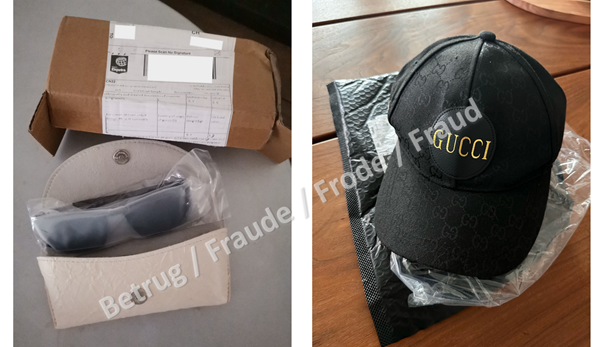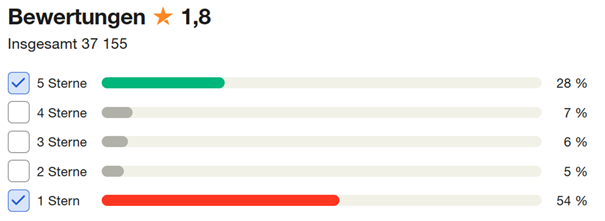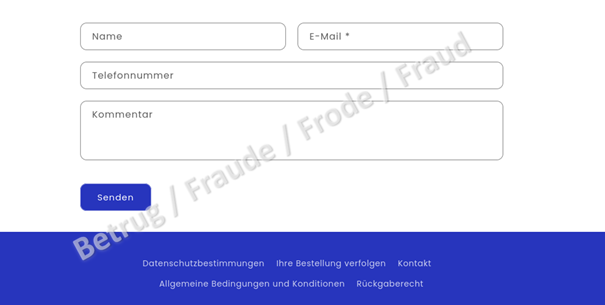08.08.2023 - Buying online from unknown webshops is always a risk. The goods paid for in advance may not arrive at all, or the buyer may receive something of inferior quality. If the shop which is supposedly located in Switzerland turns out to be located in Asia, the legal options are soon exhausted. Last week, the NCSC was notified of several fake shops that could have been recognised with a little prior knowledge.

Shopping in online shops is practical and constantly on the increase, and unfortunately cybercriminals know how to exploit this. In addition to webshops that do not exist and merely pocket the money, numerous shops were reported to the NCSC last week that deliver only a cheap imitation or something entirely different to the goods ordered.
How to recognise these fraudulent webshops?
Below are some tips that can be used to identify fraudulent webshops:
Suspicious internet address structure
Often the first subdomain belongs to the company in question, so fraudsters cannot use this name.
They can, however, reserve a modified version of the brand name for themselves, for example, by adding "-switzerland"- or "-suisse" to create a reference to Switzerland.
A webshop's reputation
It is worthwhile reviewing webshop ratings in advance. The quantity and distribution of the ratings are of interest.
Is there already a sufficient number of people who have had dealings with the webshop – or is it so new that no one has rated it yet? This could be an indication of a fraudulent shop.
Are the reviews only either very good or very bad? Fraudsters often "make up" for the negative reviews from disgruntled customers with 5-star reviews they either buy or create themselves.
Examples of internet sites that rate webshops are https://www.trustpilot.com/ and https://www.scamadviser.com/.
Be extremely cautious when accessing a website via an advertisement in a search engine or another website – unfortunately, these advertisements often lead to fraudulent websites.
Certificate and "About us" page
Further indications of a fraudulent webshop are the certificates used. Free certificates (letsencrypt.org, sslforfree.com, etc.) are more likely to indicate a fake webshop.
However, the "About us" page is more informative: is the address correct and can it be found on geographical map services? Is the company ID given and are an email address and telephone number provided?
If you want to be sure, contact the webshop in advance using the contact details given in the "About us" page.
Searches in directory services
It is interesting to look for information about a website. The two most important questions are: how long has it been online and where is it run from? Internet services such as Whois are an important tool for this. Whois is the central directory service of the internet. International domains, for example, can be queried on the websites
https://www.whois.com and
https://whoisrequest.com/
The website https://www.nic.ch/whois provides helpful information regarding Swiss .ch top-level domains.
Shopping in an unknown webshop is and remains a risk, even if you follow these tips. Caution and common sense are always important: for example, if you discover a website for a Swiss brand of chocolate that is operated on an Asian cloud and has only been active for three months, it is most likely to be fraudulent.
Current statistics
Last week's reports by category:
Last modification 08.08.2023















